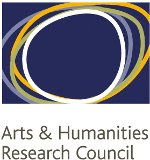Wednesday, May 11, 2011
CAL FOR PAPERS - RECONFIGURATIONS
10, 11 & 12 November.
The Pinter Centre for Performance and Creative Writing is delighted to invite expressions of interest for the final international conference in the 'Beyond the Linear Narrative' 3-year AHRC project.
Papers and panel proposals are invited on the following themes.
*Reinventing genres in contemporary postcolonial and diasporic writing and performances
*Fractured narrative as dissent
*Reconfigured forms, reconfigured identities
*Disassembling the grand narratives; telling stories after Empire.
*Multistranded pasts, multiple voices.
*Reshaping modes of life writing.
*Performing identities; identities as performance.
*Fragmentation as a rejection of patriarchy
*Poetry and its transformations in postcolonial and diasporic contexts.
*Reconfiguring the cultural scene; new presences in contemporary writing and performance.
Please send all submissions and queries to b.pester@gold.ac.uk
Please see our website for more details about the Pinter Centre and the Beyond the Linear Narrative project.
www.gold.ac.uk/pinter-centre
More about the conference:
This conference will be the third and culminating annual conference put on as part of the Goldsmiths Pinter Centre for Performance and Creative Writing AHRC-funded project, Beyond the Linear Narrative: Fractured Narrative in Writing and Performance in the Postcolonial Era. This research project has been exploring the links between inter-cultural and political change and the emergence, or re-emergence, of non-linear and fractured narrative, particularly in postcolonial and diasporic contexts. If these fractured and experimental forms are a response to the breakdown of the west's grand narratives of progress, we have asked, what forms of resistance or revision do they provide? In what ways can they be seen to emerge from the increasing interaction of different cultures in the colonial, post-colonial and post-Cold War world? How do such fractured narratives work in postcolonial and diasporic writing and performance?
The project has looked at these issues through three seminar strands offering in-depth studies of three different areas: African diasporic writing, theatre and performance, Caribbean/diasporic life writing, and gender and sexuality in contemporary British diasporic writing and performance. We have drawn in both scholars and creative artists, and our research has, we believe, already contributed new thinking to the understanding of postcolonial and diasporic literature and performance, their evolution and development, and to the assessment of the nature and impact of contemporary creative practices. This final conference will be a 'festival' of events as well as an academic interrogation of the nature of narrative, performance and genre in today's multiethnic, multicultural world. Its aim will be to investigate how postcolonial and diasporic writing and performance use fractured forms to explore our culturally diverse society's competing and conflicting narratives, and to explore, through creative practice as well as academic analysis, the way these art forms make and shape new and multiple identities, both in terms of cultural affiliation, and of gender and sexuality.
The programme will comprise academic papers, readings and performances, as well as workshops from our two artists in residence. The conference will be open not only to scholars, writers, performers, students from Goldsmiths and other universities, but to local participating schools and members of the general public. We aim to create an atmosphere in which scholarly research and artistic practice are made accessible to a wide audience. The conference will build on the work of the three seminar strands, though it will range more widely among diasporic groups, as well as on the successful conferences in 2009 and 2010, which each, over three-day periods, hosted over 100 participants and contributors, and included workshops, rehearsed play-readings, performed poetry and full theatrical performances in Goldsmiths' George Wood Theatre. The conference is particularly timely in the context of the transformations in the British as well as international cultural scene, where many of the richest contributions to artistic and cultural life come from the flow of traditions across borders, and the fusion of diasporic cultures with each other and that of their hosts. It is timely also in light of the current debate initiated by the Prime Minister into how we understand multiculturalism and cultural plurality today.
www.gold.ac.uk/pinter-centre
http://thepintercentre.blogspot.com
Videos
About the Project
'Beyond the Linear Narrative...' is a 3 year AHRC funded research project being carried out by the Pinter Centre for Performance and Creative Writing at Goldsmiths, University of London.
Taking Pinter’s work as a starting point for, or symbol of, the fracturing of narrative across many art-forms in twentieth and twenty-first century work, this research project asks a series of questions about the links between inter-cultural and political change and the emergence, or re-emergence, of non-linear and fractured narrative.
Focussing on literature and performance, particularly in postcolonial and diasporic contexts, it will ask why non-linear narrative has been such a feature of this period’s artistic production. If these fractured and experimental forms are a response to the breakdown of the west’s grand narratives of progress, what forms of resistance or revision do they provide?
In what ways can they be seen to emerge from the increasing interaction of different cultures in the colonial, post-colonial and post-Cold War world? How do such fractured narratives work in postcolonial and diasporic writing and performance? How can these fractured forms explore our culturally diverse society’s competing and conflicting narratives?
The project addresses the ways changing understandings of the self have contributed to the disruption of linear narrative, and in particular, how fractured narratives enable the move away from the Cartesian mind/body duality to an understanding of the embodied self, making the writing of the body such an important element in contemporary performance, fiction and life-writing.
About the Pinter Centre
In line with Harold Pinter’s keen awareness of the centrality of political issues, the Centre is particularly committed to looking at postcolonial and diasporic literature and performance, and the ways in which contemporary creativity is forging new forms that respond to the cultural diversity of the world in which we live. It also has a strong interest in questions of gender, and writing and performing the body.




No comments:
Post a Comment